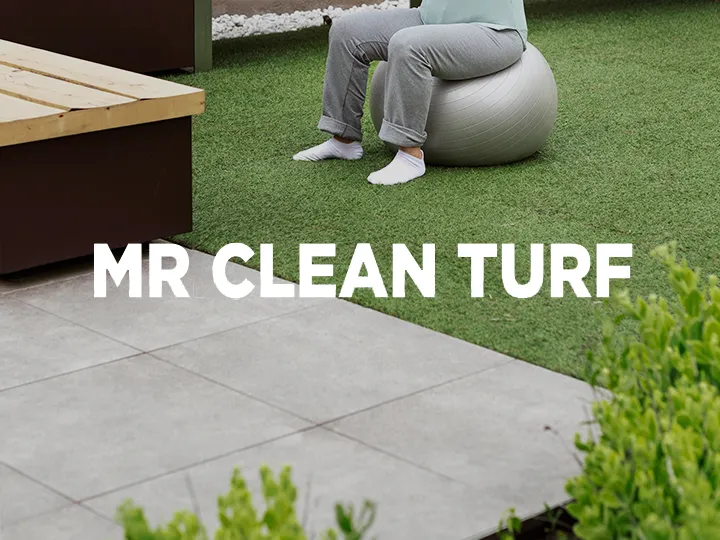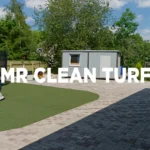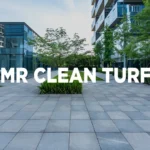Permeable Pavers | A Durable and Green Solution for Your Yard
Rainwater collection on your driveway and patio continues to bother you because it damages soil while ruining your flower beds. Durable concrete and asphalt surfaces create additional drainage problems because they prevent ground-soakage of water. Permeable pavers present a solution that shows better judgment. The innovative porous material structure within these products permits rainwater to travel between its gaps, which subsequently directs this water into the soil rather than storm drains.
This infrastructure absorbs pollutants from rainwater, which protects surface bodies of water such as lakes and streams. Concrete brick and recycled rubber serve as strong materials to create permeable pavers that maintain quality performance throughout several decades without degradation or subsidence. Homeowners value these pavers because they come in configurations that suit all gardening design themes, so you can achieve rustic flagstone pavers or contemporary bluestone driveways. The green design of permeable pavers leads to increased property value.
This guide provides information about how permeable pavers unite their functionality with earth-friendly advantages. Let’s dive in.
What Are Permeable Pavers, and Why Do They Matter?
Permeable pavers help create environmentally friendly paths towards driveway and patio construction that serve as walkways. Rainwater seeps into the ground through permeable pavers since their construction negates concrete or asphalt. This practice stops floods and decreases environmental pollutants. The manufacturing process of these pavers uses concrete, brick, or recycled plastic components, and the void spaces receive gravel or sand to permit fluid drainage.
How Permeable Pavers Work
The pavers create a layering structure with crushed stone and gravel below them. The paver arrangement permits water to seep between them before the base acts as a filtrator while the water reaches the underlying soil layer. The water drainage system prevents water from forming puddles and protects your yard against erosion.
Environmental Benefits You Can’t Ignore
Stormwater runoff decreases by a maximum of 70%, according to the EPA in their analysis of permeable pavers. These pavers possess the ability to capture pollutants, including heavy metals and oil, which results in improved water quality in lakes and rivers. They refill groundwater reserves that maintain water supply in dry regions because they assist in the recharge of underground reservoirs.
Types of Pavers for Every Style and Need
Permeable pavers offer versatility in appearance since they work with both rustic charm and contemporary minimalism aesthetics. We will now examine different materials to help you find the best pavement solution based on your yard’s climate condition, together with design and financial plan constraints.
Classic Choices: Brick and Cobblestone Pavers
Brick pavers maintain their classic appeal for decades and survive for more than two and a half decades. The strength of granite made cobblestone pavers extends to handling the weight of automobiles. These materials allow water drainage at a slow pace, which makes them appropriate for wet conditions.
Modern Options: Concrete and Bluestone Pavers
Concrete pavers provide affordability together with a wide selection of forms, including hexagons and rectangles. The blue-gray finish that bluestone pavers and natural stone variants provide to outdoor patios creates a sleek appearance. The pavers display excellent slip resistance characteristics and maintain effectiveness near swimming pool areas.
Unique Alternatives: Flagstone and Rubber Pavers
The rough texture of flat, irregular stones makes flagstone pavers give off a traditional wooden look. The material known as rubber pavers consists of waste tires that create a comfortable surface while offering great functions in children’s play zones. These pavers are both rare and completely permeable and very straightforward to set into place.
A Step-by-Step Installation Guide
A correctly installed permeable paver system will endure decades with almost no maintenance needs. Using the following procedure, you can establish a durable foundation that will efficiently process water as a pro.
Preparing the Base for Longevity
Carry out digging operations at a depth of 8 to 12 inches before you layer the crushed stone and gravel elements. Each layer needs to be compressed smoothly with a compactor. Permeable pavers need a steady base foundation that keeps them from sinking into the ground and functions as a quick water drainage stage.
Laying Pavers Correctly
When arranging pavers, keep a gap of ⅛–¼ inch between them while filling the spaces with either gravel or sand. Declining to use mortar prevents water from flowing since it creates a water-blocking barrier. Driveway pavers should come with a rating higher than 8,000 lbs to support vehicle traffic.
Keeping Your Pavers in Top Shape
Regular maintenance practices help your permeable pavers to stay durable so they remain effective. Here, you will find basic instructions for maintaining your permeable pavers with no significant labor involved.
Simple Cleaning Tips
You must perform an annual sweep of leaves and debris to stop clogging. The use of a pressure washer on the low setting is suitable for removing tough stains from surfaces since it prevents surface damage. Avoid strong chemicals because they can affect surrounding plants while also altering the permeability of the pavers.
Fixing Common Issues
You should remove sunken pavers one by one before adding more gravel to your base layer and re-establishing the needed slope levels across the surface. A layer of sand inside the gaps helps both by stopping sunlight and blocking seed germination.
Cost vs. Value: Are Permeable Pavers Worth It?
The expense for permeable pavers might be higher upfront, yet their longevity, combined with environmentally friendly qualities, delivers more than sufficient value throughout their lifespan. The following table presents a comparison between the initial costs and long-term advantages of permeable pavers.
Upfront Costs |
Detail |
| Cost per Square Foot | 10–30, depending on materials |
| Budget-Friendly Option | Concrete pavers (cheapest) |
| Premium Options | Bluestone or cobblestone pavers (higher cost, unique aesthetics) |
Long-Term Savings |
Detail |
| Lifespan | Outlasts asphalt by 15-20 years |
| Stormwater Fee Reduction | The effective management of runoff enables fee reduction. |
Incentives |
Detail |
| Tax Rebates | Available in some states (e.g., Maryland) for eco-friendly installations |
Rules and Rebates You Should Know
The process of working with local laws in combination with available incentives will guide your permeable paver project while lowering its total cost. This quick guide explains how you can fulfill your requirements and reduce expenses.
Local Laws for Stormwater Management
Driveways and patios constructed in many cities must utilize permeable surfaces because they adhere to EPA guidelines. Permeable pavers have been designed to satisfy local building standards, which enables you to prevent penalties and support enhanced stormwater control at the community level.
How to Claim Tax Credits
Residents should consult their local government programs, which provide compensation for implementing environmentally friendly landscaping techniques. Mobility customers in California can receive financial rewards for selecting types of pavers composed of materials with a minimum 30% recycled content. The programs exist to provide substantial discounts that lower your project expenses.
H2: Final Thoughts
Underground water management becomes environmentally beneficial through the installation of permeable pavers. The pavers serve to reduce flooding and pollution and maintain themselves for long decades with minimal maintenance requirements. All available brick, concrete, and rubber paver choices represent intelligent, environmentally friendly selections. These pavers combine space-enhancing benefits with environmental support by minimizing runoff quantities and reviving groundwater resources.
Choose from a wide range to achieve any landscaping design requirement while staying within any budget constraints, so these pavers offer complete practicality to contemporary landscapes. The durability of these materials cuts down maintenance costs because they need fewer repairs and replacements, thus providing better long-term budget savings. Take the step to create sustainable improvements in your yard while supporting environmental recovery.
You Are Ready To Improve Your Yard Through An Upgrading Process. Contact Mr. Clean Turf immediately to browse their collection of durable permeable pavers that suit your requirements.



